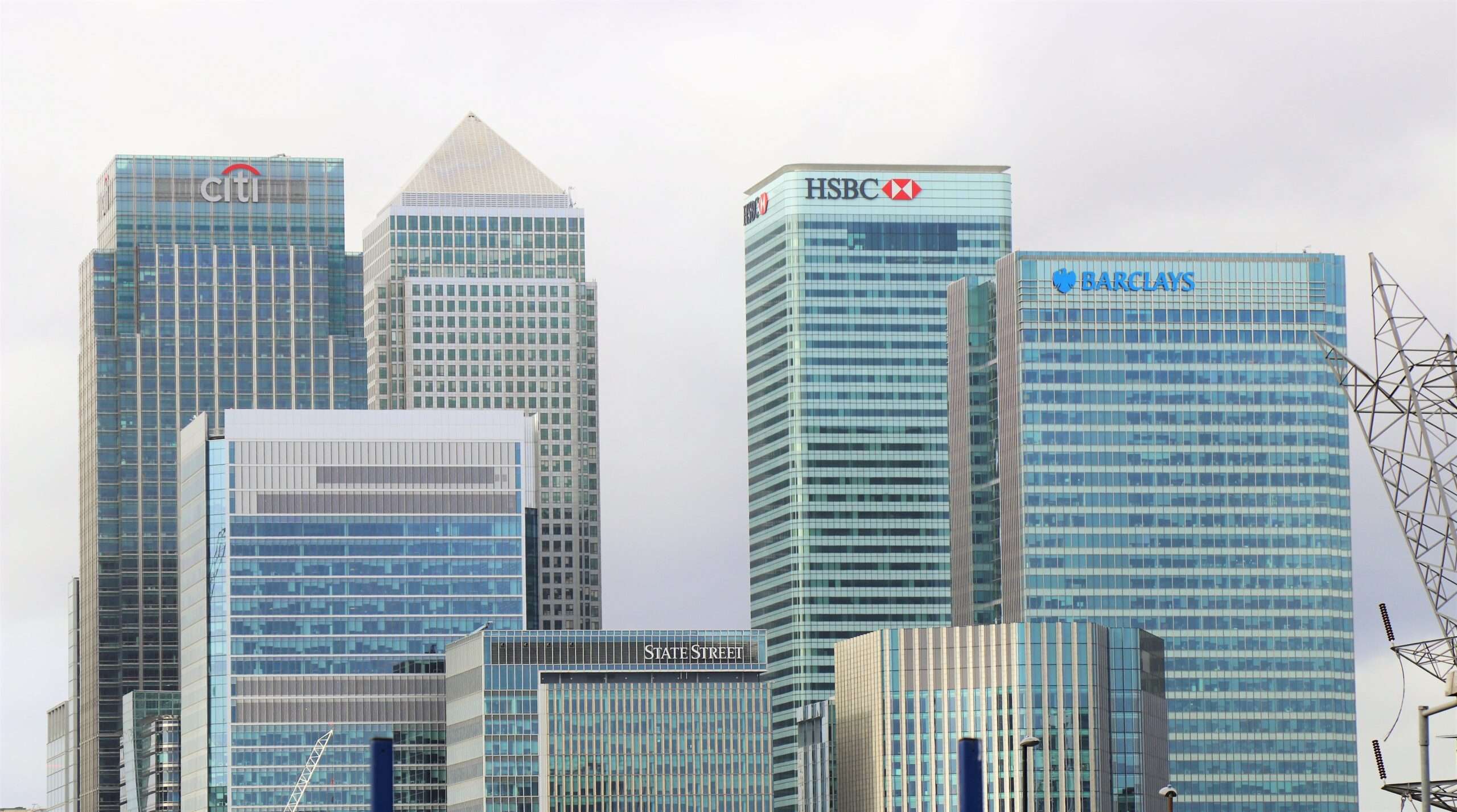
We know that saving money in a bank has long been considered a safe and secure way to preserve one’s money. After all, banks are renowned financial institutions that offer a range of services, including savings accounts.
Even though conventional wisdom makes many of us believe that depositing our hard-earned money in a bank is the smartest choice longterm, a deeper dive into the world of personal finance challenges this notion. As one becomes more knowledgeable and financially intelligent, it becomes glaring the tangible reasons why saving your money in the bank might not be the wisest move for your financial future.
I get it. Banks have been the go-to destination for savings for generations. They provide a sense of security, offering protection against theft or loss of funds. Also, depositing money in a bank ensures the convenience of making transactions, accessing funds and providing credible information for organisations who require them like embassies and loan companies. These factors have made saving money in a bank a popular and widespread practice.
However, it’s important to challenge the status quo and question whether stashing your money in a bank is truly the best option. There are some surprising reasons why it may be worth reconsidering this approach. I would like to highlight these and options for what you can do instead.

Why saving money in the bank is bad
1. Limited Interest Rates
One of the primary reasons why you might want to reconsider saving your money in a bank is the relatively low-interest rates offered on savings accounts. While it’s true that banks provide a secure place to store your funds, the returns on these accounts are often meagre compared to other investment options.
Typically, the interest rates on regular savings accounts hover around 0.01% to 0.10%, and even the highest-yield savings accounts rarely exceed 2%! Such paltry returns can severely limit the growth potential of your savings over time.
What makes the rates offered by banks even more concerning is the impact of inflation on the value of money. Inflation is the gradual increase in the general price level of goods and services over time which effectively erodes the purchasing power of your money. If the interest earned on your savings account doesn’t keep pace with inflation, your money’s real value will diminish over the long term.
For example, if the inflation rate is 6% and your savings account earns interest at 2%, you are effectively losing purchasing power at a rate of 4%. Consequently, the money in your savings account may not stretch as far into the future, making it harder to achieve your financial goals. Bottom line? Even though your account balance is growing, its purchasing power could be declining.
2. Hidden Fees and Charges associated with money in the bank
This is probably the one that irks me the most personally. Saving money in a bank may seem like a straightforward and hassle-free way to manage your finances, but it’s essential to be aware of the various fees and charges associated with traditional bank accounts. Banks often levy a multitude of fees that can quickly eat into your savings if left unchecked.
Depending on your geographical location, the modus operandi of your bank, and the type of bank account you own, some common fees include:
- Account Maintenance Fees
- Transaction fees (dependent on the amount and portal of payment)
- ATM Fees (especially when you withdraw cash from another bank’s ATM)
- Overdraft Fees (applicable to checking accounts)
- Alert notification fees
- VAT, and so on
The negative impact of these fees over time adds up and can significantly erode your hard-earned savings. They eat into whatever interest was earned on your savings, effectively reducing the growth of your account balance.
3. Risk of Bank Failures
If there is something the 2008 financial crisis taught us, it’s just how banks can fail. Even well-established ones can encounter difficulties due to various factors such as economic downturns, mismanagement, or unforeseen events. In 2023 alone, banks like Silicon Valley Bank and Silvergate have also gone bust for various reasons. One must understand the possibility of a bank facing financial crises because though relatively rare occurrences, they have far-reaching consequences.
When a bank fails, there is a risk that depositors may not be able to access their funds immediately. Depending on the jurisdiction and the circumstances, government-backed deposit insurance schemes (such as the FDIC in the US) jump in and may provide some level of protection for depositors up to a certain limit.
If a bank is unable to reimburse depositors fully, the consequences for individual savers can be severe. Not only will you lose a portion of your savings, but the process of recovering your funds can be time-consuming and uncertain. This uncertainty can cause financial stress and disrupt your financial plans. The fallout from the 2008 crisis was unfathomable.

4. Limited Access to Funds with money in the bank
Traditional bank accounts typically can come with restrictions and limitations on accessing funds in your savings accounts especially. Banks impose these measures to maintain liquidity and ensure the stability of their operations. Unfortunately, these limitations in turn impact on your financial flexibility.
Restrictions like the number of withdrawals or transfers you can make from your accounts within a specified time period. There could be penalty fees or a forfeit of your interest for exceeding a certain number of transactions. Or a set monthly transaction limit you cannot exceed. Additionally, there may be delays in processing certain types of transactions, such as large cash withdrawals or international transfers, which can further restrict your access to funds.
These restrictions can be very inconvenient and lead to extreme frustration! You might have a personal tale or two to tell on this one. In cases of emergencies or unforeseen circumstances, for instance, you may need immediate access to a significant amount of money. If your bank has withdrawal restrictions in place, quickly obtaining the funds you require becomes a hassle. Don’t even get me started on how this sometimes means going to a physical branch and jumping through hoops just to get everything sorted.
Moreover, if you’re planning to make a large purchase or investment, such as buying a property or starting a business, this limited access to your funds creates needless obstacles. In the end, such delays can slow down or hinder your progress in achieving your financial goals.
5. Lack of Personalised Service
Traditional banking services often come with an impersonal touch. Customers may feel like just another account number as they navigate through automated phone systems and generic interactions at physical branches. This lack of personal connection can leave people feeling underserved and lead to frustration, especially when addressing complex financial concerns or seeking tailored advice.
Every individual’s financial situation is unique, influenced by factors such as income, expenses, goals, and risk tolerance. The benefits of personalised financial advice and assistance cannot be overstated and it allows customers to receive advice that aligns with their specific needs, helping them make more informed decisions about their money. Whether it’s retirement planning or investment strategies, having a financial professional who understands your circumstances can significantly enhance your financial well-being. This is typically not obtainable in a traditional bank setting.
So now that we know what the issues are, what can we do about them? I wasn’t gonna leave you empty handed of course. Let’s talk solutions.
Where to save money besides a bank
Fortunately, alternative investments, financial products and platforms exist that offer more returns, flexibility and access to your funds. Thereby empowering you to have more control and value from your money.
Investments with higher returns than money in the bank

- Stock Market Investments: Investing in the stock market provides an opportunity for substantial returns over the long term. While stocks do carry some level of risk, they historically outperform savings accounts and beat inflation by growing at an average of 10% per year. Diversifying your investments across different companies and industries can help mitigate risk and potentially boost your overall returns.
- Bonds and Treasury Securities: Bonds and treasury securities are considered relatively safer investments than stocks and can offer better returns than savings accounts. They provide fixed interest payments over a specific period, and some government bonds are even backed by the full faith and credit of the government.
- Mutual Funds and Exchange-Traded Funds (ETFs): These investment vehicles allow you to pool your money with other investors and invest in a diversified portfolio of assets. They are managed by professionals and offer exposure to a range of markets and industries, potentially yielding higher returns than traditional savings accounts.
- Real Estate: Investing in real estate, either through direct ownership or Real Estate Investment Trusts (REITs), can be a viable option for generating passive income and capital appreciation.
- Money Market Accounts: These offer higher interest rates compared to regular savings accounts while still providing relatively easy access to funds. These accounts often come with check-writing privileges and debit card options, enhancing the convenience of accessing your money.
Platforms that give higher returns than money in the bank
- Savings Accounts of Online banks and Fintech companies : These provide competitive interest rates along with the flexibility of withdrawing your funds when needed. These digital banks operate with lower overhead costs compared to traditional brick-and-mortar banks, allowing them to pass on the savings to their customers. Plus, they often have fewer restrictions compared to traditional savings accounts while still offering the security of deposit insurance schemes.
- Credit unions: These are not-for-profit financial cooperatives that typically offer more competitive rates and lower fees compared to traditional banks. Credit unions are owned and operated by their members, which means they prioritise their members’ financial well-being rather than maximising profits.
By exploring these alternative financial products and platforms, you can find options that align with your financial needs and preferences. Diversify your banking options and investment portfolio. Even though it does not offer complete protection against all risks, allocating your savings across multiple institutions or assets is a prudent strategy that reduces the vulnerability of your savings to the risks associated with a single institution or asset class. This allows you to preserve more of your savings for future financial goals.
Carefully evaluate the terms and features of each alternative, ensuring they meet your specific requirements while also considering any associated risks, fees or potential limitations. The end goal is to have greater control over your money and maintain your right to be financially flexible.
It's important to note that all investments carry some level of risk, and it's essential to do due diligence, know your risk tolerance and/or seek professional financial advice before making any investment decisions.

To wrap up on why you shouldn’t save your money in the bank
Saving money in a bank, while a common practice, may not always be the best option considering the surprising reasons we’ve explored. Limited interest rates can hinder the growth of your savings, especially when inflation is taken into account. The hidden fees and charges associated with traditional bank accounts can eat into your savings over time, impacting your financial goals. The risk of bank failures, although relatively low, can have severe consequences for depositors. Limited access to funds in traditional bank accounts can also restrict your financial flexibility. And of course, there is the lack of a personal touch!
It’s crucial to consider alternative financial strategies and products that can address these challenges. Go ahead to explore investment options that offer both safety and higher potential returns. Diversify your savings across multiple institutions or assets and consider online banks or fintech platforms that offer lower fees and greater convenience.
That being said, it’s important to recognise that personal finance is personal. Individual financial goals and circumstances vary, and what works for one person may not be suitable for another. Therefore, it’s essential to evaluate your own financial situation, assess your risk tolerance, and seek professional advice if needed, to make informed decisions that align with your specific needs and aspirations. By doing so, you can maximise the growth and protection of your savings while achieving your long-term financial objectives.
You can discuss with a financial coach for some further guidance and discussion on this topic. Best of luck with growing that money!

One reply on “Surprising Reasons You Shouldn’t Save Your Money In The Bank. Do This Instead.”
Hello Money Doctor Izzy,
I really did enjoy reading your write up and talk about money.
My opinion is that money is not made for saving, rather money is made to be use or invest.
Having working with First Bank Insurance which partnered with Sanlam International, now known as Sanlam Nigeria as Sanlam Life Insurance Limited and partnering with First Bank Nigeria Limited.
I have come to learnt that instead of just saving your money in the Bank, you can as well invest in the same bank in a period of time and make good profits.
For instance, instead of saving 100m in First Bank, you can as well invest the 100m with Sanlam Nigeria in the same first Bank for 5 years and make profits of about 30% to 40%.
And you are sure that you will get your capital and profits back with assurance of getting your money back.
I love reading your write up as it’s make more sense to me since I have been working in finance, Investment and insurance for over a decade now.
Thank you so and I hope to read more from you.